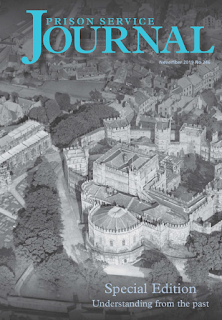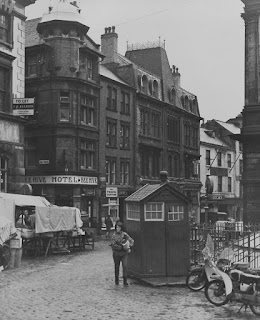2nd – 4th September 2020, Centre for Criminal Justice Studies, School of Law, University of Leeds
The British Crime Historians Symposium (BCHS) meets every two years to discuss and debate original historical research on all aspects of crime, policing, punishment, law, criminal justice and social regulation. Since the first meeting in 2008, the BCHS has become a leading academic forum in this broad and vibrant field of research.
The next conference is hosted by the Centre for Criminal Justice Studies in the School of Law, University of Leeds. Confirmed keynote speakers include Professor Louise Jackson (University of Edinburgh) and Professor Randolph Roth (The Ohio State University).
The conference welcomes proposals for papers, panels and other sessions concerned with the history of crime and criminal justice, especially (though not exclusively) in connection with Britain and its former colonies. Papers on all topics and periods within this broad remit are welcomed. Submissions are encouraged from researchers across a wide range of disciplines (including, but not limited to, history, criminology, law, socio-legal studies and sociology), and from postgraduate and early career researchers. Postgraduate presenters will be invited to submit their papers for the Clive Emsley Prize, awarded for the best postgraduate paper at the conference. (We posted about the winner of the 2018 prize
here.)
Typically speakers will have 20 minutes to present their paper. Panels should each consist of three papers selected to illuminate an overarching topic, theme or issue, and organisers are encouraged to consider including postgraduate and early career researchers in their panels. Suggestions for alternative formats (roundtable sessions, source/method-based workshops, ‘author meets readers’ sessions, etc.) are welcome; please discuss any ideas with the conference organising committee in the first instance.
For individual paper proposals, please include: paper title; name(s) of author(s); institutional affiliation (if applicable); email address (of proposing author); paper abstract of no more than 250 words.
For panel proposals, please include full details (as outlined above) for each constituent paper, in addition to: panel title; name, institutional affiliation (if applicable) and email address of the panel organiser; abstract of the panel’s aims (no more than 150 words); name of panel chair (if nominating a specific chair).
The deadline for submission of proposals is Wednesday 8 April 2020. Please send proposals by email attachment to: bchs@leeds.ac.uk
The conference organising committee consists of: Roger Baxter (University of Sheffield); Eleanor Bland (University of Leeds); David Churchill (University of Leeds); Kisby Dickinson (University of Leeds); Elliott Keech (University of York); Henry Yeomans (University of Leeds).
Please direct any queries to:
bchs@leeds.ac.uk
 |
| Typewriter belonging to Nathan Leopold Jr., part of the evidence against him and Richard Loeb for the murder of Robert Franks, Chicago, 1924. Chicago Tribune Historical Photo. |





